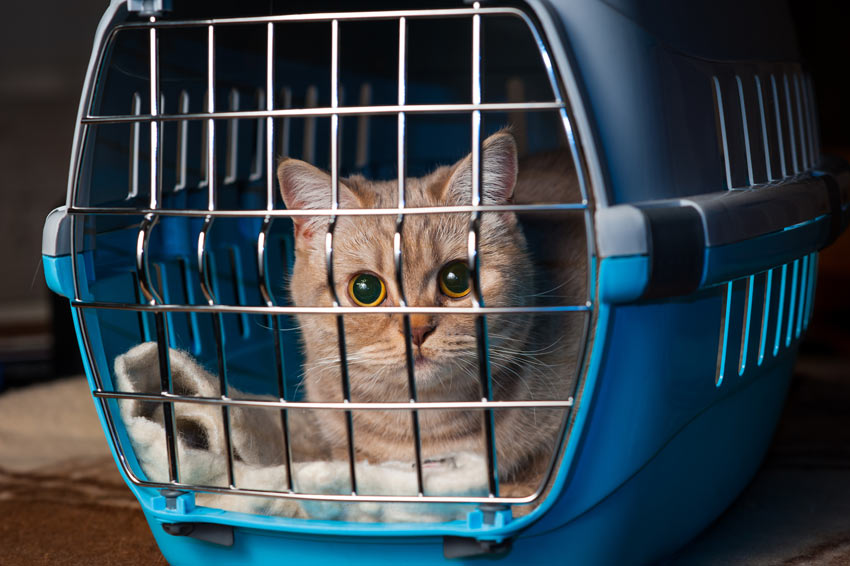Taking your cat on an adventure, or more likely a trip to the vet or cattery doesn’t need to be stressful. Most cats won’t have spent much time travelling, and the experience they gain as a kitten is usually not a very positive one. After being taken away from their brothers and sisters and then taken to the vets for multiple checks, vaccinations and even neutering, it is no surprise that cats dislike the car.
Fortunately there are steps you can take to reduce stress and increase the comfort of your cat’s car journey.

An endearing ginger cat in her cat carrier
Cat Carrier
Firstly, you will need to invest in decent sized cat carrier. These come in a range of shapes and sizes but the most important things are for it to be secure, spacious and well ventilated.
Next you should place an old towel in the bottom of the carrier to absorb any accidents and then put some of your cat’s bedding on top of the towel so the carrier smells familiar.
There are also products available such as Feliway which have been shown to calm cats down and reduce behavioural problems. Using these products to spray the inside of your cat’s crate prior to travelling may improve their travel temperament.
Important Tip
Never travel with a cat who is not securely in a cat carrier. When travelling, don’t be tempted to hold your cat, wrap them in a towel or open the door to their carrier. A cat loose in a moving car is a recipe for disaster so simply don’t risk it.
Traveling Abroad With Your Cat
When taking your pet abroad you will need to check the entry requirements of the country you are traveling to. Depending on the country you’re traveling to you need to do the following (and do them in this order):
- Have your cat vaccinated against rabies (Your cat will need to be at least 12 weeks old before she can have her rabies vaccination.) If you are traveling to an unlisted country your cat will have to have a blood test 30 days after the rabies vaccination. If you are traveling to an EU or listed country your cat can travel 21 days after her rabies vaccination. Your cat’s booster vaccinations also need to be up to date.
- Your cat will need either a pet passport or a third country official veterinary certificate which can be issued by your vet. Some transport companies require a statement from your vet confirming that your cat is fit to travel. Your pet passport stays valid for as long as your cat meets the entry requirements.
- On entering the UK your cat will be placed into quarantine if she is found to not meet the entry requirements.
- For more information on the rules and regulations on traveling abroad with your cat visit the DEFRA pet travel scheme website.






Comments
There are no comments just yet